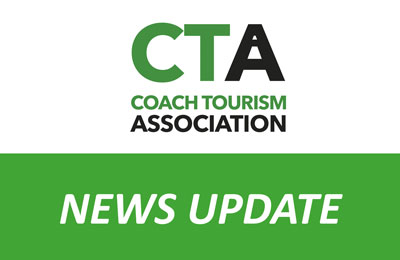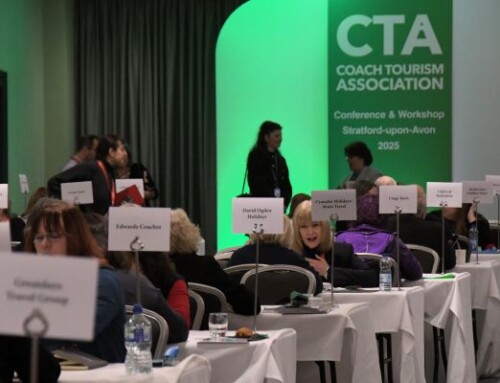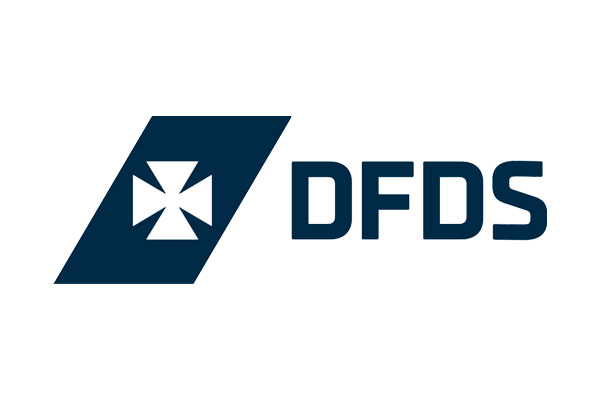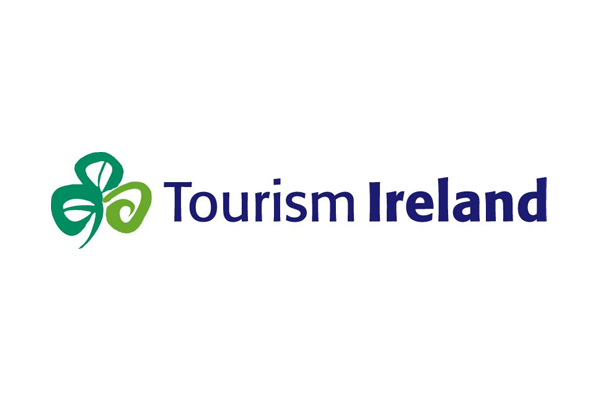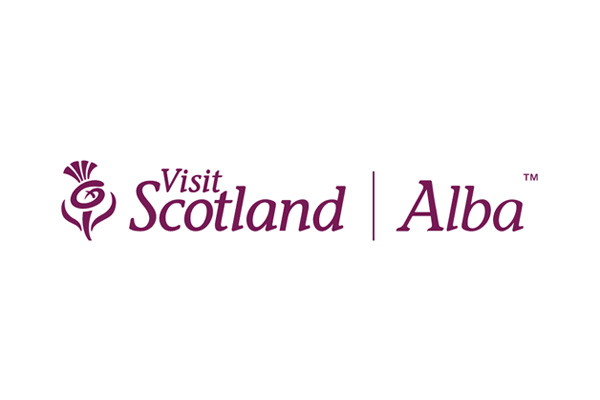COVID-19 Updates – week commencing 01/06/20
More updates of developments from the government and various links to interpretation and guidance.
Go to date:
1 June 2020 …
Tourism Alliance updates:
CORONAVIRUS JOB RETENTION SCHEME – OVERVIEW OF CHANGES
On Friday 29th May, the Chancellor of the Exchequer announced changes to the way the CJRS will work
The changes introduce flexibility into the scheme that will allow some part-time working from those placed on furlough from 1st July, and also a tapering of the amount paid by the Government, and a requirement for employers to pay some of the wage costs from 1st August
The Chancellor also announced the the second version of CJRS will end on 31st October
KEY DATES – OVERVIEW OF CHANGES
10th June – The final date that you can place an employee on furlough for the first time
30th June – From this date the CJRS will close to any new entrant. From this point onwards, you will only be able to furlough employees that you have furloughed for a full three-week period prior to 30 June
1st Jul – From this date the scheme allows some part-time working
1st July – A new calculation will apply to factor in the cost of hours worked to hours furloughed ratio
1st August – From this date employers will be required to pay the ER NICs and pension contributions that were previously covered by the scheme
1st August – a new minimum reporting period of one week will apply
1st September – From this date the amount paid by HMRC will reduce to 70% up to a cap of £2,187.50 for the hours the employee does not work – employers will pay ER NICs, pension contributions and 10% of wages to make up 80% of the total up to a cap of £2,500
1st October – From this date the amount paid by HMRC will reduce to 60% of wages up to a cap of £1,875 for the hours the employee does not work – employers will pay ER NICs, pension contributions and 20% of wages to make up 80% of the total up to a cap of £2,500
31st October – The Coronavirus Job Retention Scheme will end
FLEXIBLE OR PART TIME WORKING – OVERVIEW OF CHANGES
From 1 July 2020, employers will have the flexibility to bring previously furloughed employees back to work part-time – with the CJRS continuing to pay 80% of wages for any of their normal hours they do not work up until the end of August
- Anytime an employee is given work the period must cover at least one week, and be confirmed to the employee in writing
- When claiming emploYers will submit data showing the usual hours an employee would be expected to work in the claim period and the actual hours worked
If employees are unable to return to work, or when employers do not have work for them to do, they can remain on furlough and employers can continue to claim the grant for their full hours under the existing rules
The Government has also published a new document on the extended scheme that includes some detail on the measure to improve its flexibility. Of note is that the date for flexibility has been brought forward to 1 July so that it comes in before tourism and hospitality businesses reopen – which is what we have been lobbying for.
- From 1 July, employers can bring back to work employees that have previously been furloughed for any amount of time and any shift pattern, while still being able to claim CJRS grant for their normal hours not worked.
- From 1 July, employers will be able to agree any working arrangements with previously furloughed employees.
- When claiming the CJRS grant for furloughed hours, employers will need to report and claim for a minimum period of a week.
- This is a minimum period and those making claims for longer periods such as those on monthly or two weekly cycles will be able to do so.
- Further guidance on flexible furloughing and how employers should calculate claims will be published on 12 June.
2 June 2020 …
Tourism Alliance updates:
Some notes for you from this morning’s CBI Webinar where Carolyn Fairbairn, their Director General, provided an overview of Coronavirus-related issues.
Job Retention Scheme
- Flexible furlough introduced, minimum of three weeks is now only one week, starting at beginning of July
- Costs will start being shared, transition from employers paying NICS and pension contribution and paces up to 20% contribution
- Also saw extension of support for self-employment
- Clarity that JRS will end at the end of October
- More evidence of HMT listening to businesses
- Should be under no illusion how difficult this is going to be for businesses – still think there will need to be more help for those sectors that can’t open
- What does recovery plan look like to support training, supporting people to get into new jobs
- We will see a wave of redundancies and it is going to be painful
Concerns at Opening Up
- June is going to be a really busy month – some schools, nurseries, car showrooms, outdoor markets opening today, non-essential retail from 15 June
- Employers remain concerned over their responsibilities and liability – test and trace is confidence building to get people back. Question is what happens if employee/s has to self-isolate – what is state support in that eventuality – pushing for SSP support for big businesses, not just SMEs
- Bigger question is if you have a large number of people self-isolating, what level of support is available
- Strong message from government that nothing has really changed, nothing changed in terms of H&S guidance, it is guidance and it is best efforts – some communication needed to firms so that they don’t feel too concerned about employer liability. We have a sensible H&S regime, not too over-zealous, firm intention of Government is that it shouldn’t become so. Advice sheets will be published over the course of this week
Changes to the 2m rule
- WHO rule is 1m, other countries have different distances. CBI can demonstrate the difference it makes to a sector, eg transformational to hospitality, creative industries and would benefit to manufacturing
Quarantine
- We are imposing quarantine on 8 June, at that point Italy is lifting their quarantine – important not to hang a Closed sign over the UK
Government Policy
- Philosophical decisions being made in government now on interventions and spending levels – Tory mainstream philosophy will back investment in skills
- Want to see new prioritisation of infrastructure – not blue sky thinking, but really useful infrastructure eg full fibre broadband, switch out boilers in homes
Brexit is Back
- Carolyn had meeting with Michel Barnier – set out the same case that we are setting out to Government, businesses not prepared for a hard deal or no-deal Brexit
- Brexit stocks have been run down, businesses are going all out on survival – everyone needs to recognise lack of resilience
- Important joined up business voice required across Europe that says both sides need to compromise – have to put entrenched positions aside and find a deal that protects everyone
- Unlikely we will see an extension to transition in June, opportunity has gone – we are into ticking clock again in autumn
- The idea of a temporary deal is interesting, but concerned that damage will have already been done by time we get to November
- We know how much gets spent and wasted on stockpiling and preparation – ideal is to try and get to something by September, that is point of no return and a real cost to the economy – even if we do a last minute deal, we will have cost jobs at a moment when we will be back to 1980s unemployment levels
Access to Finance
- Bounce-back loans – £18.5bn, approval rate 80%. There is a caution though, concern in banking community that they are being seem as grants and we are storing trouble up for ourselves – need to recognise they are loans to be repaid.
- CBILS – £8.2bn, 50% approval rate – still hear about people being turned down for unclear reasons
- Larger CBILS – particular EU State Aid issue that is being taken to HMT, not every country is interpreting the rules the same way we are
Only a couple of things today but they are significant for many tourism businesses as they relate to the FCA seeking a legal ruling on Business Interruption Insurance and new guidance on outdoor recreation and sports which support a lot more businesses being able to be opened. The details of the Government’s new quarantine proposals which are due to come into force in just six days were also due to be published today but I’m still awaiting these and will send them through as soon as I get them.
Draft Guidance for Insurance Companies
As part of its investigation into Coronavirus related business interruption insurance, the FCA have published draft guidance on their expectations for insurers and insurance intermediaries when handling claims and complaints for business interruption policies during the test case. The guidance highlights the steps firms should be taking to:
-
- identify the potential implications of the test case on their decisions to reject claims
- keep policyholders informed about the test case and its implications for policies, claims and any settlement offers
- treat policyholders fairly when the test case is resolved
In addition, they have provided an update in where they are in terms of their legal case – they have reviewed over 500 relevant policies from 40 insurers and identified a sample of 17 policy wordings that capture the majority of the key issues that could be in dispute – and set out a timetable for the court case which is scheduled for the second half of July
CPT Operational update:
GUIDANCE FOR FURLOUGHED DRIVERS – EU DRIVERS’ HOURS/RTR
The Department for Transport has recently issued updated guidance for employers and drivers on how furlough affects the working time rules that apply to mobile workers
The guidance is intended to help drivers’ understand how they should record activities on their tachograph, or by manual record, when furloughed, including when undertaking other work
The guidance is for employers and drivers who are regulated by:
- EU or AETR drivers’ hours and tachograph rules
- the Road Transport (Working Time) Regulations that apply to mobile workers
Recording Activities
Drivers and employers must record activities as follows:
- record ‘driving/other work/availability/rest/breaks’ (as appropriate) if engaging in work for another employer driving vehicles in scope
- record ‘other work’ if conducting work for another employer which does not involve driving vehicles in scope
- record ‘break’ or ‘rest period’ if conducting no work at all (self-isolating at home or are otherwise not undertaking any work)
Road Transport (Working Time) Regulations
Drivers and employers must record activities as follows
Employers must record sufficient information on furloughed workers to meet their obligations under regulation 11 of the Road Transport (Working Time) Regulations 2005
- The time spent on furlough does not form part of the calculation of the average maximum weekly working time, as it does not fall under either ‘working time’ or ‘excluded hours’
- Therefore if a furloughed worker is not doing other work, the time spent on furlough is not working time
- It is also confirmed that any training (that would usually be recorded as working time), undertaken whilst on furlough is not considered as working time
- Work that is undertaken by a mobile worker while they are furloughed (for instance for a different employer) that is in scope of the regulations must be recorded and form part of the calculation of the worker’s average weekly working time.
When on furlough, if a driver takes ‘statutory leave’ (5.6 weeks Statutory Minimum Holiday Entitlement) this must be recorded correctly. 48 hours must be recorded for the mobile worker’s normal working week and 8 hours per day for any period of time which is not a full week
Any leave over and above statutory leave does not have to be accounted in working time totals and can be used to reduce the 48-hour average
Record Keeping
Drivers must be able to provide their employer with a record of time they worked for another employer, for inclusion in the calculation of the mobile worker’s working time.
A furloughed driver temporarily undertaking work for another employer must be able to provide:
- the temporary employer with a record of time worked for their normal employer
- their normal employer with a record of time worked for the temporary employer
Employers who place drivers on furlough must request from each details of any time worked for another employer. They must include time worked for another employer in the calculation of the driver’s working time
Employers who temporarily employ drivers who have been placed on furlough by their normal employer must request from each driver details of any time worked by that worker for another employer. They must include time worked for another employer in the calculation of the driver’s working time
Downloading Data
Drivers do not need to download their card every 28 days if they are not driving. Furloughed drivers should download their tachograph card when they return to driving, if possible immediately before they resume driving activities
If operators are unable to ensure drivers’ card downloads are carried out due to COVID-19 related reasons, a record of this should be made and provided to a DVSA examiner if requested
A vehicles’ unit data should still be downloaded every 90 days even when the vehicle is not used. If operators are unable to download a VU due to COVID-19 related reasons, a record of this should be made and provided to a DVSA examiner if requested
The Department for Transport reminds operators that breaching the Road Transport Working Time rules is a serious offence. The DVSA can deal with infringements in a number of ways including the issue of a prohibition notice or, in the most serious cases, a prosecution
Guidance on the Road Transport (Working Time) Regulations can be found on the link below
Road Transport (Working Time) Regulations
4 June 2020 …
Tourism Alliance updates:
Here’s today’s update with the much expected statement on Quarantining. But equally interesting is the Prime Ministers answers to questions during PMQs today on support for tourism businesses to help them survive over the winter period.
PMQs and Tourism
At Prime Minister’s Questions today, Boris Johnson answered three questions that there tourism related
-
- Asked if the furlough scheme can be extended for the air industry until 2021, he said that could not give that commitment but the government will look at all it can do to support the industry.
- Asked if Self Employment Support would be extended company directors who gain their income from dividends, he said that the answer was very complex but essentially it would be too difficult from HMRC to verify people’s income.
- However, the most interesting response was in relation to a question from Tim Farron about whether the Government the government would provide support to tourism businesses in Cumbria to survive until the 2021 season. The Prime Minister replied that “all sorts of packages were being developed to support the tourism industry over the winter period”. He did, however, say that these support packages would not be the same as the existing packages and put no timeframe on when these measures would be announced.
Statement on Quarantining
The Home Secretary gave an oral statement to the House today on the new quarantining legislation that was introduced today and will come into effect on 8th June. The key retails of the new legislation are:
- In advance of travel to the UK, both UK and overseas nationals will be required to fill-in a Contact Locator Form which includes details as to where they will isolate for two weeks and how they can be contacted. Proof of completing this form has to carried by the passenger and is subject to checks by Border Force on arrival.
- PHE will undertake spot checks to make sure that people are self-isolating for the two weeks at the address provided on the form
- There is a £100 if you don’t complete the form and a £1000 if you don’t undertake self-isolation
- The Home Secretary must review the need for the information requirement at least once every 21 days, with the first review being carried out by 29th June 2020
There are two other things of note in the oral statement – one is that air bridges are not ruled out and the second is the statement that “We know they will present difficulties for the tourism industry, but that’s why we have an unprecedented package of support, the most comprehensive in the world, for both employees and businesses” which come as news to airlines, airports, tour operators, coach operators and English Language Schools.
The oral statement is on this link
And the legislation itself is available on this link
http://www.legislation.gov.uk/uksi/2020/567/contents/made
BVA- BDRC Weekly Consumer Sentiment Tracking
Attached is a copy of BVA-BDRC consumer sentiment tracking research. Some of the main tourism-related findings are:
-
- The desire to go to a visitor attraction in the near future has increased for the second consecutive week – 27% now intend to visit in the next 3 months
- 18% of people now anticipate going on a UK holiday by the end of August, compared to 14% last week and just 6% the week before
- Of those not intended to take a domestic holiday, 32% say nothing will change their minds
- On average those considering a trip overseas don’t plan on taking it until Spring 2021
- The public think that quarantine proposals are not beneficial and will be ineffective
- The number of people planning to go to a restaurant within the next three months has increased from 17% to 31% in the past two weeks
- 40% of people think that they will book accommodation before the end of the year
- The expected use of coaches, trains and planes remains down around 20% and is not showing signs of recovery.
CPT operational updates:
PHOTOCARD LICENCE EXTENSION – DVLA ANNOUNCEMENT
DVLA has announced that due to the ongoing COVID-19 crisis, photocard driving licences that expire between 1 February 2020 and 31 August 2020 will be automatically extended for 7 months from the expiry date
In line with advice from Public Health Wales the agency has a very limited number of staff on-site who are focusing on applications from those who are directly involved in the response to the pandemic
Drivers do not need to take any action as the extension will be automatic and they will be sent a renewal reminder before their 7 month extension ends
The extension applies only to the photocard renewal date. It does not apply where a driver’s entitlement to drive is due to expire they will need to renew this in the normal way
If a driver has already applied online to renew their photocard, this will application will continue to be be processed as normal. If they have already sent a paper application to renew their photocard there will be delays in processing, but the 7 month extension will apply in the meantime
DVLA’s digital services are still operating as normal and the agency urges everyone to use them where they can
A full list of the digital services available can be found on the link below
Due to the reduced number of staff on-site DVLA have temporarily reduced the opening hours of the contact centre until further notice
The current reduced opening hours are Monday to Friday 8am to 1pm and 2pm to 7pm
The contact centre will also be closed on bank holidays
Please use to following telephone numbers to contact DVLA
Vehicles enquiry – 0300 123 1272
Drivers enquiry – 0300 123 2408
Drivers Medical enquiry – 0300 790 6103
Critical/Key workers can also email DVLA using this link
HSE GUIDANCE ON RIDDOR REPORTING – DURING COVID-19 PANDEMIC
The detailed reporting requirements that employers should follow to report accidents and injuries to HSE are specified by the Reporting of Injuries, Diseases and Dangerous Occurrence Regulations 2013 (RIDDOR)
There is no requirement under RIDDOR to report incidents of disease or deaths of members of the public or service users from COVID-19
The reporting requirements relating to cases of, or deaths from, COVID-19 under RIDDOR apply only to occupational exposure, that is, as a result of a person’s work
The new reporting guidance issued by HSE makes clear that employers must make a judgment based on the information available as to whether a confirmed case of COVID-19 in an employee is likely to have been caused by occupational exposure. The amendment to the guidance provides employers with flexibility to decide if submitting a report is required.
Reports under RIDDOR should be made when one of the following circumstances applies:
- A report of a dangerous ocurrence should be made when an accident or incident at work has, or could have, led to the release or escape of coronavirus (SARS-CoV-2)
- A report of a case of disease should be made when a person at work (a worker) has been diagnosed as having COVID-19 attributed to an occupational exposure to coronavirus
- A report of a work related death should be made when a worker has died as a result of occupational exposure to coronavirus
It is obviously very unlikely that a report for a dangerous occurence in relation to the release of coronavirus will need to be made by an employer in our sector
When deciding if a report is required for a case of disease, the responsible person must make a judgement, based on the information available that there is reasonable evidence that a work-related exposure is the likely cause of the disease
For an incident to be reportable as a death due to occupational exposure to coronavirus there must be reasonable evidence that a work-related exposure caused the worker’s death
Most cases of COVID-19 are currently being confirmed on the basis of laboratory test results and without a registered medical practitioner’s written diagnosis
HSE will adopt a pragmatic approach in the current highly unusual circumstances and not require those results to be confirmed by a registered medical practitioner before a report is made under RIDDOR
For an occupational exposure to be judged as the likely cause of the disease, it should be more likely than not that the person’s work was the source of exposure to coronavirus as opposed to general societal exposure
Reasonable Evidence of Occupational Exposure
When deciding if a report is required, the responsible person must make a judgement, based on the information available, as to whether or not a confirmed diagnosis of COVID-19 is likely to have been caused by an occupational exposure
There must be reasonable evidence linking the nature of the person’s work with an increased risk of becoming exposed to coronavirus
- whether or not the nature of the person’s work activities increased the risk of them becoming exposed to coronavirus
- whether or not there was any specific, identifiable incident that led to an increased risk of exposure
- whether or not the person’s work directly brought them into contact with a known coronavirus hazard without effective control measures, as set out in the relevant PHE guidance
Normal work with the general public is not considered sufficient evidence to indicate that a COVID-19 diagnosis is likely to be attributable to occupational exposure
Coming into close contact with members of the public or work colleagues known to be infected during the course of their work will indicate that a COVID-19 diagnosis is likely to be attributable to occupational exposure
Where a worker dies from COVID-19 and a RIDDOR report has already been submitted for a case of disease, this can be amended by submitting a duplicate form. All relevant information should be resubmitted, with any changes
DRIVER CPC – EXTENSION OF EXPIRY DATES OF DRIVER QUALIFICATION CARDS
DVSA has announced that the validity of DQCs that expire between 1 February 2020 and 31 August 2020 has been extended for 7 months
The extension will be applied automatically.
Drivers do not need to take any action, but must continue to carry their DQC at all times when driving professionally
As this extension is the result of a change to an EU regulation, all EU countries are obliged to recognise the extension of a DQC
When carrying out international road transport a driver should continue to carry their current card
DRIVER CPC – CHANGE TO PREVIOUSLY ANNOUNCED EXEMPTIONS
On 31st March 2020, DVSA announced that that drivers whose DQC expires in the period from 1 March 2020 to 30 September 2020 can continue driving even if they have not completed the necessary 35 hours periodic training
This notice has now been rescinded, after the changes to the EU regulation detailed above
Therefore a driver whose DQC expires in September cannot continue to drive until they have undertaken the necessary 35 hours of periodic training
Full details of the changes can be found on the link below
Tourism Alliance updates:
A few bits and pieces today including an update on what’s happening with regard to developing guidance for businesses on what they need to do to operate safely when they reopen on 4th July.
Work of the Visitor Economy Working Group
As you will be aware the Tourism Industry Council has been turned into the VEWG and been given the task of co-ordinating the guidance for tourism and hospitality businesses that will allow them to operate in a safe a secure manner when they open from 4th July. This work is progressing extremely well with a huge amount of effort and co-ordination between DCMS, VE and the Industry. The situation at the moment is as follows
-
- DCMS is producing the top line guidance on what businesses need to do in terms of undertaking a risk assessment of their business and implementing cleaning and social distancing regimes that allow them to operate safely
- The Industry is producing a series of detailed protocols for different businesses types across the sector which takes this top line guidance and tell businesses how to operationalise it. For example, the top line guidance will say that rooms have to be thoroughly cleaned between changeovers and the protocols will explain how to do this
- VE is developing a system whereby business can, on lodging their risk assessment, get a Mark that can be used to show customers that they are operating in accordance with Government guidance
It is planned that all three of these elements will be available to businesses around the 15th June. This will give businesses almost three weeks to digest the information, undertake the risk assessment and register it with VE, implement the appropriate cleaning and social distancing systems, and use the Mark in promotional activities.
Trade Credit Insurance
The Government has announce a £10bn trade credit insurance coverage scheme to support businesses by protecting against customer defaults or payment delays.
https://www.gov.uk/government/news/trade-credit-insurance-backed-by-10-billion-guarantee
Recreational flying in England
DFT has updated its guidance on recreational aviation provided that social distancing is maintained while doing so. In practical terms this means that only the following flights are permitted:
-
- solo flights
- flights where everyone is from the same household
- flights in aircraft where social distancing measures can be maintained – such as tandem cockpits spaced by more than 2 metres, or occupancy of separate parts of the aircraft structure. This will be good news for the UK’s wing walking community.
Coronavirus outbreak FAQs
The Coronavirus FAQ has been updated to include the legislative changes that were made on Monday which included being able to meet-up with up to five people outside your household group.
More HMRC Coronavirus Webinars
HMRC have announced more webinar dates for businesses wanting to learn more about the CJRS and the SSPRS
Coronavirus COVID-19 Statutory Sick Pay Rebate Scheme: Providing an overview of the scheme, this webinar looks at who can claim, when to start paying SSP, employees you can claim for, making a claim, keeping records, and more.
Coronavirus Job Retention Scheme – How to make a claim: This guides you through making a claim, including the essential information you need, what to do before you make your claim, calculating and processing your claim.
5 June 2020 …
CPT operational update:
ANNUAL TESTING – DVSA UPDATE
The most recent meeting of the ‘Heavy Vehicle Testing Resumption – Industry Action Group’ was held yesterday (4th June)
The Group includes representatives from DVSA, along with the main industry trade bodies including CPT, FTA, RHA and ATFOA
Following the meeting we can give members the following update:
- DVSA continues to take steps to enable an early resumption of testing during June
- A resumption date for heavy vehicle testing at full scale will be announced following the completion of cross-Government considerations
- As part of preparation for the resumption of testing, DVSA will be checking ATFs for their readiness from Monday 8th June
Discussions are still ongoing about possible exemptions for vehicles with a July expiry date, but it is likely that this will be necessary
The CPT proposal for all annual test expiry dates to be moved forward by 3 months to help remove the backlog is being actively considered and we are expecting confirmation of this soon
DVSA emphasise that the resumption of testing has been thoroughly risk assessed, and these assessments along with the lastest operating instructions will be shared with trade bodies in due course
There will be further weekly meetings of the Heavy Vehicle Testing Resumption – Industry Action Group and we will update members of any further developments when this becomes available.
CORONAVIRUS: UPDATE ON CHANGES TO ROAD TRANSPORT RULES – THE EUROPEAN PARLIAMENT AND THE COUNCIL OF THE EUROPEAN UNION
On 25th May 2020 the EU Parliament and Council made temporary changes to the road transport rules that apply to operators and drivers of heavy goods and public service vehicles, to mitigate the impact of COVID-19 on the road transport sector
The main measures of interest to the Bus & Coach sector are:
Driver Qualification Card (DQC)
These changes were included in the update that was sent to members yesterday
The validity of DQCs that expire between 1 February 2020 and 31 August 2020 has been extended for 7 months
The extension will be applied automatically so there is no need to take any further action
As a result of this change to the EU Regulation, the DVSA has withdrawn the exemption previously announced on 31st March, which allowed drivers with a DQC that expired between 1 March and 30 September to continue driving. Therefore any driver who has a DQC that expires during September must undertake 35 hours of periodic training in order to continue driving
Full details are available here
Tachograph Calibration
Tachograph calibration and inspection certificates which expire between 1 March 2020 and 31 August 2020, will be extended by 6 months from the date the calibration was originally due
All those certificates that expire from 1 September 2020 must be renewed as usual.
DVSA are expected to provide further information in due course
Tachograph Card Renewal
Due to the possible delays in issuing replacement cards, between 1 March 2020 and 31 August 2020, drivers who apply to renew their tachograph card no later than 15 days before their card is due to expire, can continue to drive until they receive the new card. Also drivers who apply for a replacement tachograph card within 7 days of their card being damaged, malfunctioning, lost or stolen, can continue to drive until they receive a new card
Drivers with an expired card, or requiring a replacement card must continue to record all driving hours and other activities as shown in the tachograph rules contained in PSV375
Financial Standing
Article 13(1) of Regulation (EC) 1071/2009 allows the holder of a standard licence to ask the traffic commissioner for a period of time (“period of grace”) to rectify a situation where they cannot establish the required financial standing to hold an operator licence
The maximum grace period a Traffic Commissioner may give an operator to demonstrate renewed financial standing following a finding that the requirement has not been met has been extended from 6 months to 12 months.
This only applies to assessments of inadequate financial standing made between 1 March 2020 and 30 September 2020
The Senior Traffic Commissioner will shortly issue an update to the existing Statutory Guidance and Statutory Directions on how this may be applied
Tourism Alliance updates:
There are a number of things today including the revised guidance for accommodation businesses and the guidance on Quarantining. However, I would like to draw your attention to the research on the impact of social distancing on licensed premises. This work is applicable to a large number of other tourism businesses from attractions and amusement arcades, through to events, museums and conferences.
Updated Guidance for Accommodation Businesses
The Government has published updated guidance for accommodation businesses. It doesn’t address the anomaly in that people are allowed to stay away from home for business purposes but accommodation providers are not allowed to offer them accommodation. However, is does say that where hotels have large grounds, these can be made available to the public as long as guidance on accessing green spaces safely is followed. Where the hotel is also providing a takeaway food and drink service, guests should not be allowed to use outdoor seating to eat and drink. This will also help outdoor attractions and heritage properties who were, until now, not allowed to service food to people visiting their sites.
https://www.gov.uk/guidance/covid-19-advice-for-accommodation-providers
Impact of Social Distancing
I’ve attached a copy of a report undertaken by Knapton Consulting Engineers on the impact of different social distancing requirements on licensed premises that was produced for the Licensed Vintners Association. It compares the WTO recommended distancing of 1m with the UK Government’s 2m distancing to show the dramatic difference in the number of customers a property can accommodate under these different regimes. This severely impacts the business’s ability to generate revenue and therefore, it’s economic viability. This summary table is particularly important.
Quarantining Guidance
The Government has issues detailed guidance for transport businesses on the implementation of the Quarantine scheme that comes into force on Monday. The link www.gov.uk/uk-border-control must be embedded on transport operators’ websites and they are required to ensure that passengers travelling to England by sea, air or rail from outside the common travel area are provided with information about coronavirus, and related duties and public health guidance, at 3 stages of the passenger journey:
- at the booking stage
- at check-in stage
- on board the vessel, aircraft or train
Where the booking or check-in process is managed by someone other than the operator, it is sufficient for the transport operator to show that they have taken reasonable steps to ensure that the information is provided by that person.
The is also a requirement for plane and ship operators to undertake announcements akin to air safety announcements on the symptoms, precautions and the need to complete a contact locator form online.
Mandatory Facemasks on Public Transport
DFT has announced that is asking all public transport operators – bus, coach, train, tram, ferry and aircraft – to make it mandatory for passengers to wear a face covering on their journey from 15th June when non-essential retail businesses will reopen. Public transport operators will be able to refuse travel or issue penalty fines for those who fail to wear a face covering, in a similar way to the rules on having a ticket for travel. British Transport Police will also support the implementation of these changes.
https://www.gov.uk/government/news/face-coverings-to-become-mandatory-on-public-transport
Do Face Masks Make any Difference ?
Interestingly, to coincide with the requirement to wear masks on public transport, the Government has released scientific advice prepared for SAGE that concludes:
Based on the evidence from three recent systematic reviews and meta-analyses wearing face masks in the community is not significantly associated with a reduction
in ILI and the overall assessment of the quality was classified as low.
Reopening High Streets Safely Fund FAQ
The Government has published a FAQ in relation to this fund which basically tells councils that they can’t use the fund for public toilets, lost revenue from car parking, city ambassadors or security staff, private shopping centres and grants to businesses. Hopefully there will be further guidance on what they can use the funding for.
Support for International Students
The Government has announced the appointment of Sir Steve Smith as an International Education Champion to boost the numbers of international students in the UK as well as highlighting a range of support mechanism including flexibility on visa regulations.
https://www.gov.uk/government/news/universities-minister-sets-out-support-for-international-students
Cultural Renewal Taskforce and supporting Working Groups
DCMS has published the membership of the 8 working groups that have been established to support the work of the Cultural Renewal Taskforce. The remit of these Working Groups is to:
-
- Provide a forum for sector specialist and other experts to help develop guidance
- Identify and resolve practical, sector-specific guidance-related issues
- Develop a sector-wide plan for disseminating and implementing guidance
- Discuss actions and updates arising from the Cultural Renewal Taskforce
- Give stakeholders the opportunity to put questions and suggestions to Ministers
As you know the Tourism Industry Council has been reformed at the Visitor Economy Working Group for this work.
Northern Ireland Eases Restrictions
The NI Executive have confirmed the next stage of relaxation of restrictions as follows from 8th June:
– Those who are shielding will be able to spend time outside with people from their own household or a person from another household whilst ensuring social distancing is observed
– People will be permitted to leave home to attend to the needs or welfare of an animal or animals
– Outdoor marriages and civil partnership ceremonies will be allowed, with number of people attending limited to 10
– Outdoor sports facilities will be permitted to re-open
– The conduct of business by outdoor non-food retailers will be permitted, including new and used car retailers; retailers of light motor vehicles, lorries/trailers; retailers of caravans or motorhomes, and retailers of agricultural or other large machinery
– The conduct of business by non-food retail outlets with lower frequency customer visits and/or with a greater propensity for larger store areas will be permitted. But only where those outlets have direct street access or direct access within a retail park.
Daily Government press briefing
Today’s briefing was led by Health Secretary Matt Hancock. The briefing focused on the latest testing data and recommendations for health and safety, including a requirement for all hospital visitors and outpatients to wear face coverings as the NHS reopens across the country, effective 15 June. During the Q&A the first question asked about the environmental impact of businesses such as airport receiving bank loans. Hancock replied that the Government is still committed to reach the Net-Zero target, and that while the lockdown has had a positive impact on air quality, it is still necessary for airlines to operate. Another question asked about reopening Chester Zoo, to which Hancock replied that the Government is listening to representatives from zoos and he hopes they will be reopened in a safe and COVID-secure way.
Updated COVID-19 advice has been published for accommodation providers
The advice still states that businesses providing holiday accommodation (including hotels, hostels, B&Bs, campsites, caravan parks, boarding houses, and short term lets) should remain closed for leisure related stays. No person should stay overnight away from their own home for a holiday or similar purpose.
Included in the guidance is advice for businesses who provide holiday accommodation and how they can accommodate those required to self-isolate. From 8 June, certain individuals travelling from overseas will be required by law to self-isolate for a period of 14 days. Businesses providing holiday accommodation can provide rooms to those required to self-isolate because they have arrived in England from outside the UK, or arrived in England from elsewhere in the UK but have within the preceding 14 days been outside the UK. Accommodation for these purposes should adhere to the same guidelines as for other permitted stays, including on social distancing and cleaning. Read the full guidance on Gov.uk
The Republic of Ireland has announced an acceleration of their re-opening roadmap
The Republic of Ireland has announced that Ireland will move to Phase 2 of the Roadmap for Reopening Society and Business from Monday 8 June, as part of phase 2 Ireland will introduce 14-day self-isolation measures for passengers arriving from overseas from 8 June.
An acceleration of the Roadmap was also announced, meaning certain sectors and public amenities can open earlier than previously planned. All retail stores can open from Monday 8 June and it is planned that the domestic tourism sector and some hospitality operators can resume from 29 June. This change will bring forward the opening of hotels, restaurants, bars that also operate as restaurants, hostels, caravan parks, galleries and museums to 29 June.
Situation update 5 June 2020
- To see the number of cases of COVID-19 in England and the UK visit the UK COVID-19 dashboard – https://coronavirus.data.gov.uk/
- To see the number of cases globally see the World Health Organisation dashboard – https://covid19.who.int/
4th Elman Wall webinar
Below is the link for the 4th Elman Wall Covid Recovery Zoom meeting on Thursday 2 July at 2pm
You can register for it now https://us02web.zoom.us/meetin
For those members who are interested in the third Webinar, here is the link with the recording
https://us02web.zoom.us/rec/sh
Password: EW2JUNE@
